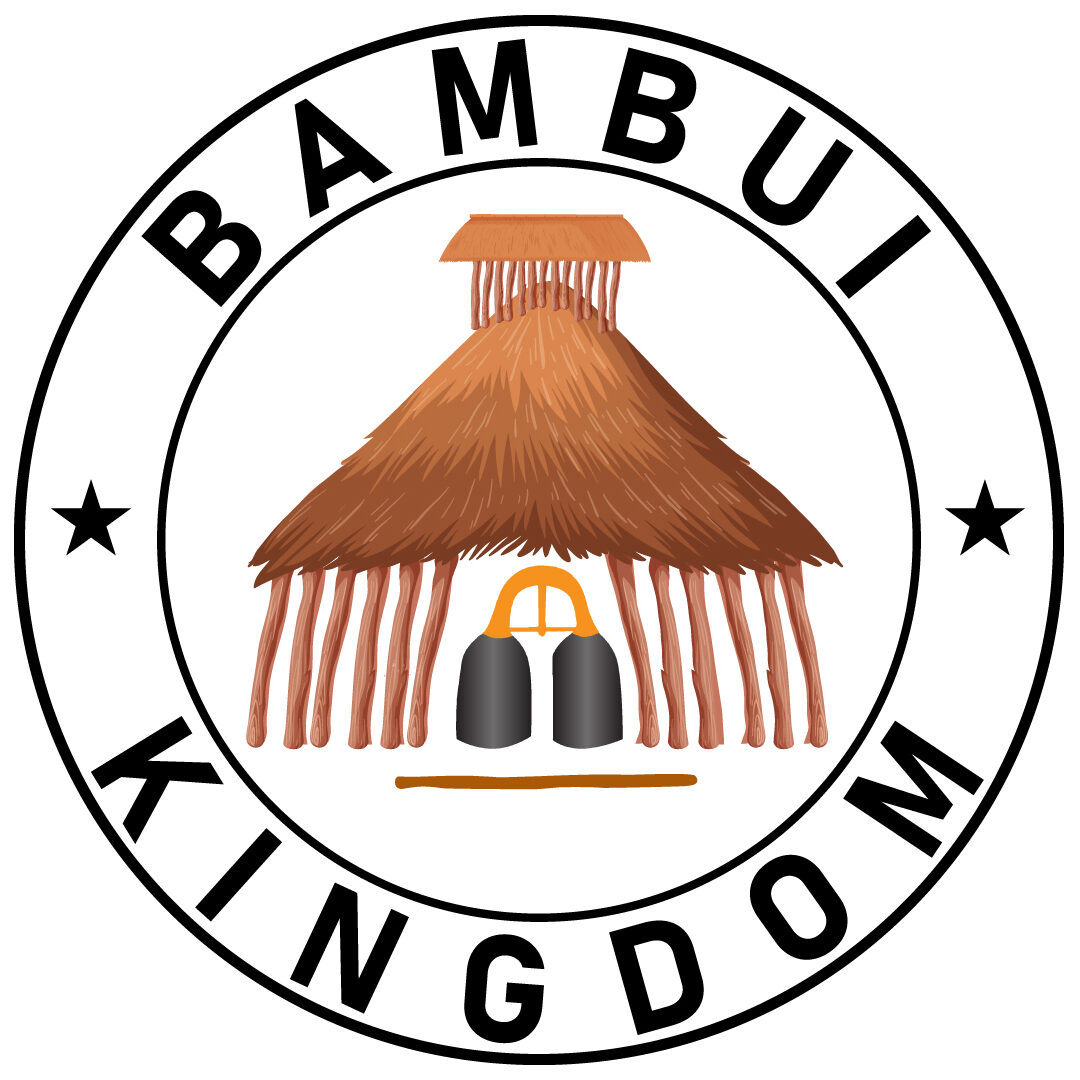Bambui’s culture, government, and political system centre on the King or Mfor, the sub-chiefs or taah and the Kwifor, which is a secret society that represents the entire population of the kingdom. The King and Kwifor have overriding powers, but the King can be disciplined by Kwifor. The King in particular has multifarious functions involving the domestic as well as the external affairs of the kingdom. Domestically, he oversees the making and execution of the laws of the land and remains the final court of appeal for unresolved matters. As chief priest, he oversees the offering of sacrifices to the gods and ancestors of the kingdom and intercedes with them for the welfare of the people. He presides at important festivals, the most important being the end of year Mandele or the King’s dance. Externally, the King represents the kingdom at all important political, economic, and cultural forums. He, in fact, is the mouthpiece of the kingdom; and his word is almost law that could make or mar the kingdom.
The King is assisted and advised by sub-chiefs, nobles, and titled royals. The most prominent among them are the Muefor, the mother of the King or a sister that represents her and three fraternal assistants called Mofor, Ndifor and Tabefor. However, none of these royal advisers serves as regent if the King is indisposed.
The Kwifor which has its own “natural” and appointed nobles has, at least in theory, far more pervasive powers than the King. Membership is restricted to commoners who have undergone some ritualistic initiation. The Kwifor is the institution that actually chooses and enthrones the King. Thus, in its role as the council of kingmakers, Kwifor checks on royal power. The King is very much aware of this role and does everything possible to avoid confrontation with Kwifor. Also, as the institution with the most pervasive powers, Kwifor oversees the investigation and judgment of cases involving, for example, witchcraft and/or murder.
Although the sub-chiefs assist the King in the administration of the kingdom, their powers are much more restricted at the levels of their clans or family groups and the neighborhood or “quarter.” Sub-chiefs as well as some nobles inherit their positions from their parents or through a lineage system. The current five sub-chiefs of the kingdom are:
· Formanju (subchief of Manju sub chiefdom)
· Formallam (subchief of Mallam sub chiefdom)
· Formatula-ah (subchief of Matula-ah sub chiefdom)
· Forala-akuba (subchief of Ala-akuba sub chiefdom)
· Forfengih (subchief of Fengih sub chiefdom)
· For maghooh (subchief of Maghooh sub chiefdom)
The government and indigenous political system of Bambui is therefore a complex web of kingship, chiefs, nobles, and an all-pervasive secret society.
